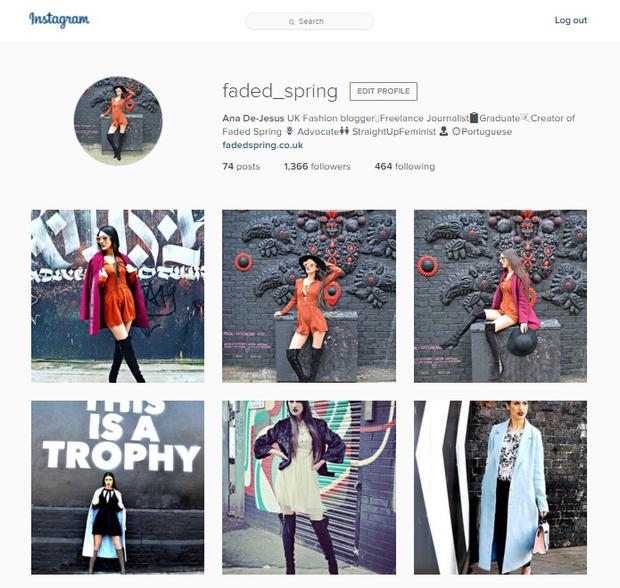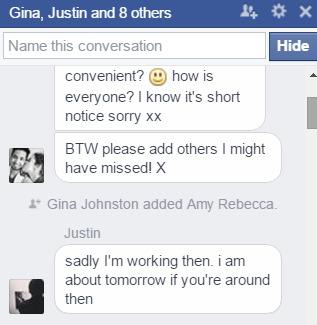Forgotten Dreams
‘Forgotten dreams buried in murky fog, in the cage we call home there is no escape, Blurred reality hidden in a fantasy world, the post-modern ethos is so true,Slavish compulsion in a wired universe, our friends are laid to bed, Impassionate lovers sleeping in seperate beds, dreams are shattered in the wake of dishonesty,Mouse and Keyboard connect as one, united in their pursuit to overthrow their magic kingdom, Muted silence in silky cocoons, imagination run wild like a lease of new life’

A Brief History Of Social Media
Social media is a cultural phenonmenon that has changed our perceptions of identity, behaviours and the way we communicate with our peers. Although social media as we know it was not established until 1997, for centuries we have used other forms of media to communicate. These include-but are not limited to- radio, telegraph and telephones as the earliest forms of technological communication. At first the concept of technological communication for social purposes was unheard of and instead for thousands of years postal service was the only known ‘long-haul’ communication method to exist.
The earliest postal service has been dated back to 550 BC and until 1792 was the only way that people could communicate from a distance. By 1792 the telegraph was invented, allowing messages-albeit shorter than letters-to travel longer distances at a faster speed than a horse and rider.
By the end of the 19th century the telephone (1890) and the radio (1891) were invented cementing the use of technology as a medium of technological change. Although less sophisticated than its modern counterparts, it was a social revolution that would change the way that we think and behave in the company of others. Telephones and radios were instant cultivating a ‘fast’ culture where news was reported as it happened and telephones could get you in contact with someone no matter the distance between the calls. The biggest social change occurred during the 20th century; In the 1940’s scientists created super computers that were built to be ‘smarter than humans’ with the capacity to transcend centuries. By 1960 Compuserve-the earliest version of the internet- was in use alongside primitive versions of emails although it was rare to find a ‘social’ computer in a home environment.
The first recognizable social media site, Six Degrees, was created in 1997, allowing members to socialize with other members and create their own profile.In 1999, the first blogging sites became popular, creating a social media sensation that’s still popular today.After the invention of blogging, social media became popular with thousands of young teens signing up to sites like Myspace and LinkedIn the early 2000’s. By 2005 with the invention of Youtube millions of people were glued to their screens watching videos and subscribing to channels they enjoyed. It was a new phenonomenon but it did not stop there; in 2006 Facebook and Twitter dominated the social sphere and by 2010 the popularity of Instagram as a visual platform created an increasingly ‘visual’ culture.
We feel validated by the amount of likes, comments and followers we have on our accounts

Although the popularity of social media has revolutionalized the way we view society and our surroundings it has also-according to scientific evidence- been damaging to our ability to socialize, with 87% of millennials admitting to ‘missing out on conversations, parties and events’ because they were addicted to their phones and could not go ‘ a few hours’ without checking their phones for updates ‘. Addiction once confined to ‘drug use, gambling and alcohol consumption’ now sees millions of individuals exhibit withdrawal symptoms if they are not constantly on their phones.
54% report ‘fear of missing out’ as the main reason why social media controls so many aspects of their lives and the under 30’s are not the only generation obessed with social media. As the average life expectancy increases in the UK, technological compentency has spread to the over 60’s too. Boredom plays a huge factor in both age ranges where ‘without’ a job social media gives them the cultural satisfaction that they crave all without having to leave their home. Social media has made us less social because it creates a fast ‘consumer culture’ where users can get ‘instaneous relief and satisfaction’ without having to spend a penny. Although most forms of social media are cost-effective it is proving damaging to our cognitive and social skills with many relying on Facebook to remind them about ‘social events, birthdays’ and ‘ghosting’ those who are not part of the social media revolution. Users have claimded they would rather answer a ‘Facebook message’ than a text whilst others state that ‘scrolling through an Instagram feed’ is far more satisfying than engaging in social conversation.
IG ‘public’ message: as you can see instead of contacting me directly a brand has sent me a public comment.

VS ‘private’ FB message

Although there is evidence to suggest social media is impairing our ‘social’ skills some sources claim that ‘social media’ has made no impact on the ‘social isolation’ trend. So what does this mean? Arguably it proves that social media is not a sustitute for true social conversation and that our ‘primitive’ need to bond is exclusive to ‘open’ rather than technological communication.Our core psychological need for “relatedness,” say researchers, mandates that we have close relationships with others.
However a study conducted over 30 years of research has found that we are less likely to participate in groups than we were 30 years ago and are more likely to live alone, entrapped in our visual fantasy that stems from an obsession with the virtual reality of social media sites. The result of social isolation has created a culture ‘without empathy’ for others , unable to function in the real ‘world’. The prevalence of social media networking sites has made it harder to maintain ‘real life’ relationships and many rely on their social media friends despite the distance and disenfranchised bond. Our online bonds are different to the relationships we make outside of social media but does that neccessarily make it a bad thing to make friends outside of the real world? Speaking from personal experience I have made wonderful bonds online that have turned into friendships that I cherish. Yet in times of difficulty it is the ‘real’ friends that have been there for me. It begs us to question the validity of identity on social media. We find it easier to trust relationships on social media because it is ‘unknown’ and removed from our home environment but also because we have the power to construe an identity that might differ from our true real-life persona.
The question as to whether social media ‘ruins’ our social lives is open to interpretation but without a doubt it has changed the way we communicate with our peers and created new challenges that we must overcome. So tell me, do you believe that social media is ruining our social lives?
What are your thoughts?

Much love Springbots xox
Photography: Jummana Khanom
Location: Soho
Blouse: Primark
Skirt: Topshop
Shoes: Primark
I didn’t realize the history of social media .. and was smiling at the mention of MySpace. It seems like so long ago. It’s so true how social media has changed the way we communicate. Kids growing up won’t have a life without it .. to even compare to. I couldn’t help but think of my parents too as I was reading. A few years ago they didn’t even have smart phones .. much less us social media. They called every Sunday from their home phone. Now that they’re connected .. they text on Sundays .. and say “Oh I followed you online .. I know how your week was” And I have to say .. you know how my week was based on the little snippets I wanted to share(!)